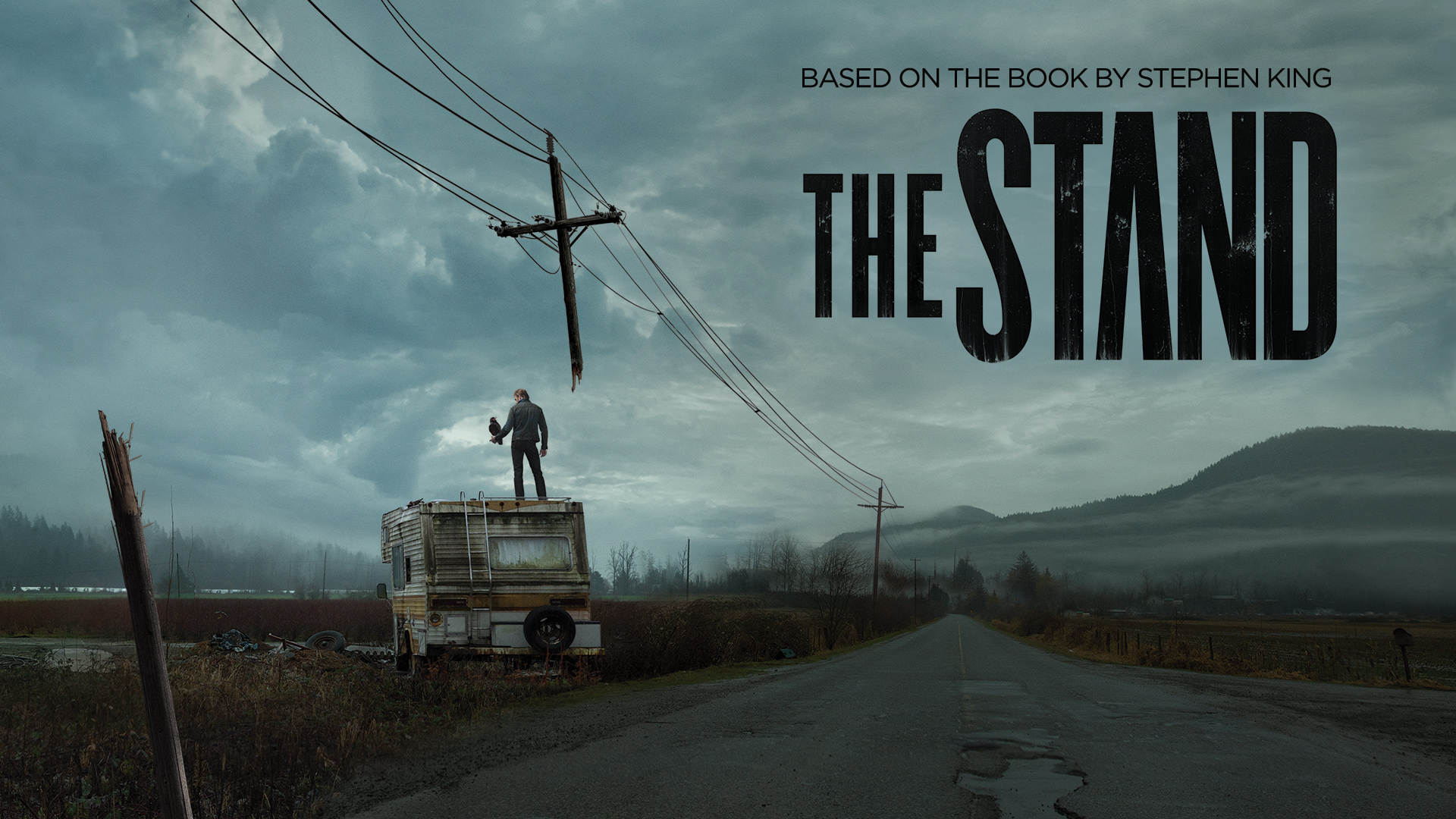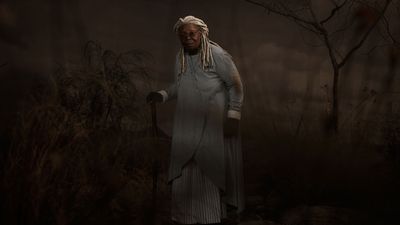
It is as inevitable that this new telling of The Stand will be compared to the current epidemic as it will be to the original novel. Though filming ended just shy of the COVID shutdowns, some moments feel pulled straight from the post-COVID year. On the other hand, there are moments that feel pre-pandemic. One can’t help but wonder what would have changed if this adaptation had been shot post-pandemic. It is possible that more accuracy would have made the whole thing too much to bear.
The Stand has always been a story about the fight between good and evil. However, the opening chords to this story feel more real than ever before. For many people, this version may be difficult to watch. The overflowing hospitals, the abandoned inmates in prison, and the almost universal denial by everyone walking around without a mask on feels far too familiar. It is almost a relief to see Randall Flagg after Captain Trips is in full swing, because in this world, there is sense to what happens after most of the world dies.
It’s like being the last people to leave a party.
Rita Blakemoor
The timeline of the superflu infection moves faster than we have seen in the real world, especially with a virus as lethal as Captain Trips. In a year where we have learned more about infection rates and protective measures, the spread of Captain Trips seems impossibly fast. Then again, the real world isn’t sporting Randall Flagg to goose it along.
New Faces, Same Story

Credit: CBS All Access
Based on the novel by Stephen King, The Stand is the story of the battle of good versus evil in the aftermath of a deadly pandemic. With 99% of the world population dead within a month of the first case of a superflu virus, survivors begin to dream of a path forward. Some dream of Mother Abagail Freemantle (Whoopi Goldberg) in Hemingford Home. Some dream of the Dark Man, Randall Flagg (Alexander Skarsgård). Many dream of both. Each survivor must decide where their path lies and with it, their fate.
This latest adaptation by Josh Boone and Benjamin Cavell for CBS All Access is far slicker than the 1994 version. In both looks and acting. While the 1994 version had a lot of hits and misses in the cast, this adaptation makes wiser choices. As one of King’s most popular works, the draw for many actors is obvious. The casting of even bit parts includes some well-known faces (and voices).
Across the board the casting for the lead roles was done well by and large. Owen Teague plays Harold Lauder with just the right balance of menace and ineptitude. Odessa Young deftly plays Frannie Goldsmith’s mix of revulsion and pity toward Harold. While Greg Kinnear plays himself as Glen Bateman, it works well because Bateman really is kind of a Kinnear. Jovan Adepo takes the little time he is given to show his character’s internal struggle, and he manages to make us believe Larry Underwood is a changed man. Add to this James Marsden as a charming Stu Redman, and you have a solid core group to build the story around.
This adaptation was wise to pick actors that could convey the wide band of emotions needed to move the story along without spending a lot of time with the journey of the characters. Which brings me to the format.
What’s New With The Stand (2020)?
This latest adaptation bounces around in time. We see flashes back and forth in the timelines of several key characters. It is not confusing, but it tips the hand on the stories a little bit. Harold’s journey to pick a side is a much shorter trip than we have previously experienced. We know the why and we know what he chooses pretty quickly, but the journey to make that choice is gone. The journeys are a sacrifice of the decision to bounce back and forth in time, but ultimately it does work. The show moves quickly. The key moments the show focuses on get to the heart of the characters, while still allowing us to see some inner struggle and turmoil.
This does not always work though. While most characters still work without us watching them struggle to choose a path, that is not true for Nadine Cross (played by Amber Heard). Nadine was one of the most tragic figures of the book because we felt her struggle to be a better person. In the interest of moving the story along, we no longer see that. While time hopping makes for a more compelling show, it does a disservice to a character like Nadine. That does not mean that this adaptation is unfaithful to the book.
Final Verdict
For years the chief complaint of King adaptations has been that it is difficult to be both faithful and good. This adaptation stays very close to the novel and it still works. The drama of the current state of the world surely makes the viewing experience more intense and upsetting, but the story was never a light one to begin with. This version strikes a good balance between a sanitized network experience and a hardcore, gory pay cable treatment. I may not find Alexander’s Skarsgård’s Randall Flagg all that terrifying, but he definitely has the cult leader side of the character down pat. I can believe people would be foolish enough to believe in a man with that smile. But it would also be foolish to pass up this latest adaptation of a well loved story.
Baby can you dig your man? Let us know if you dig it. And let us know what you think about the premiere this Thursday on CBS All Access. Episodes available to stream weekly.


![Peacock’s “A Friend of the Family” Is A Riveting & Chilling True Crime Saga [Review]](https://thathashtagshow.com/wp-content/uploads/2022/10/project_20220926_1544032-01_720-440x264.png)
![Mark Wahlberg’s ‘Father Stu’ Never Quite Lands The Way It Clearly Wants To [Review]](https://thathashtagshow.com/wp-content/uploads/2022/04/project_20220411_1244293-01-440x264.png)
